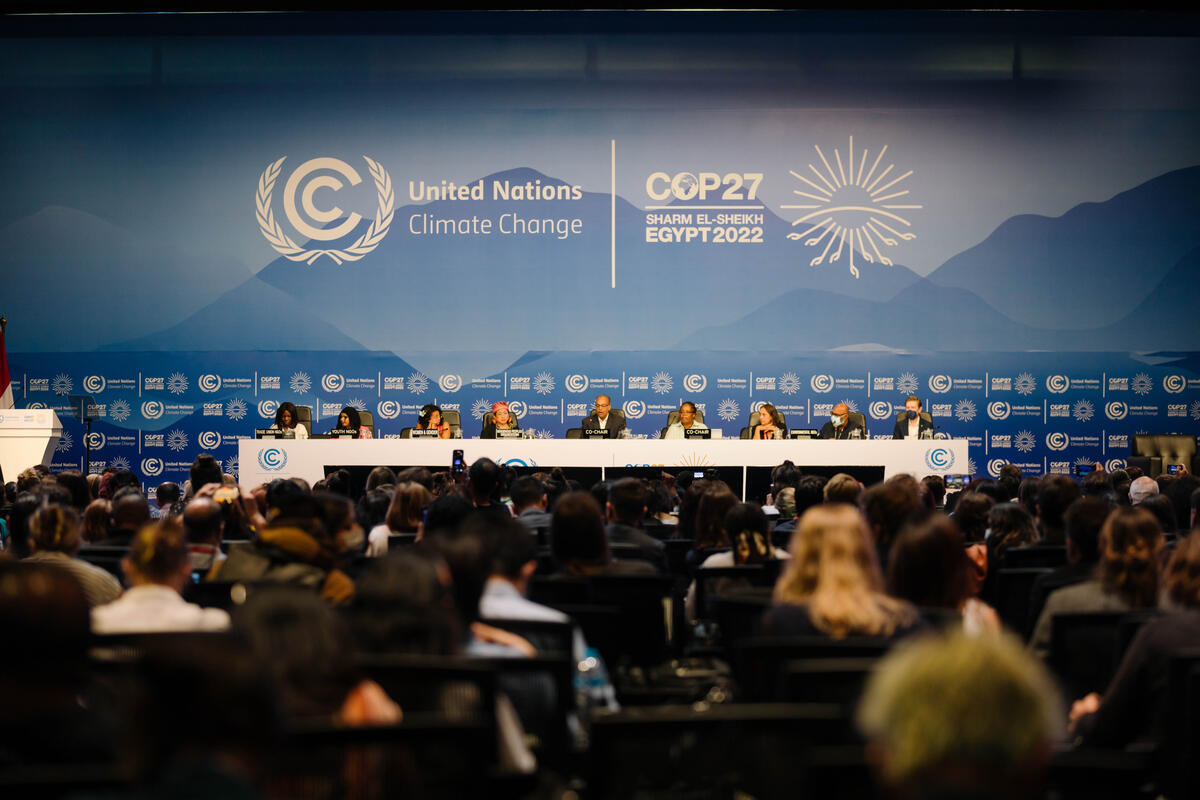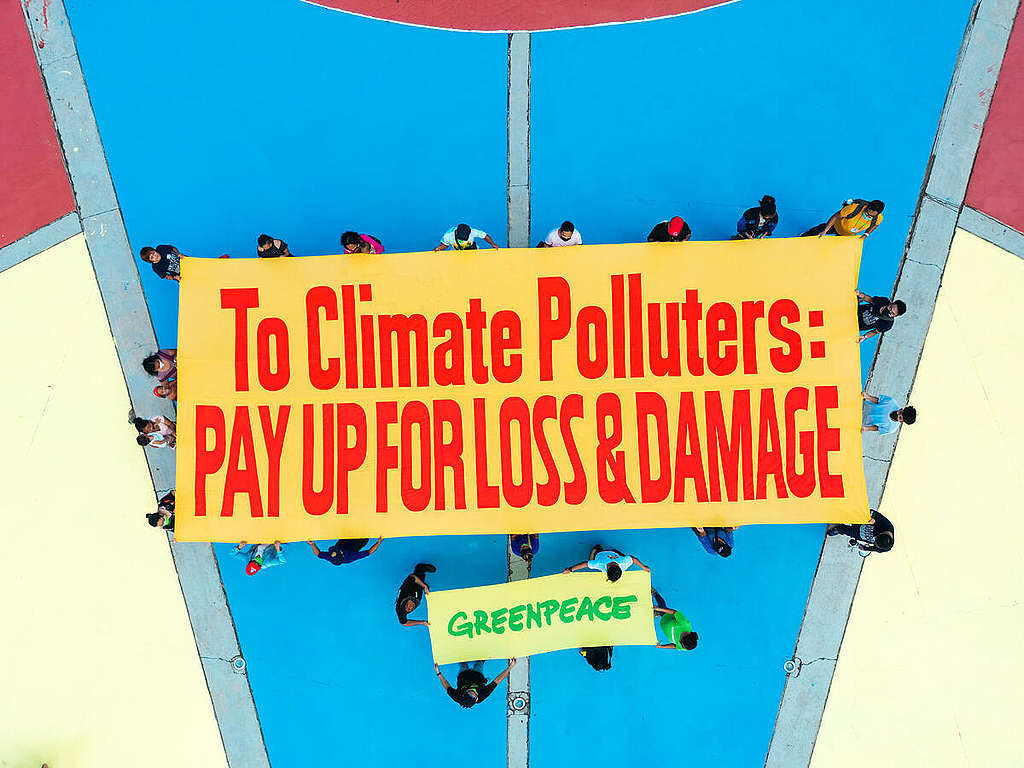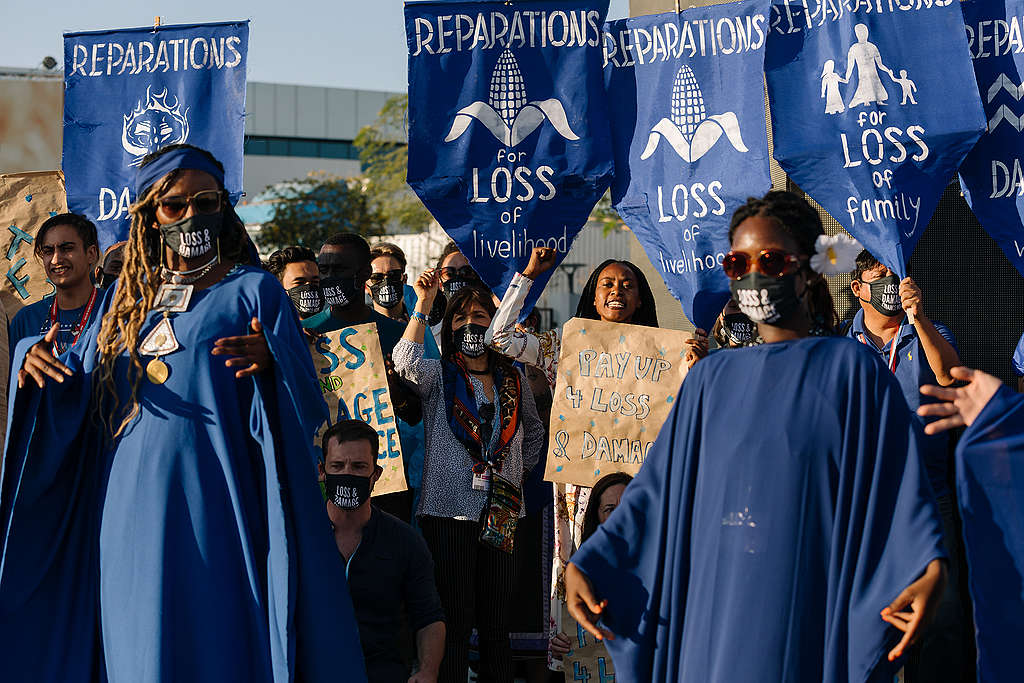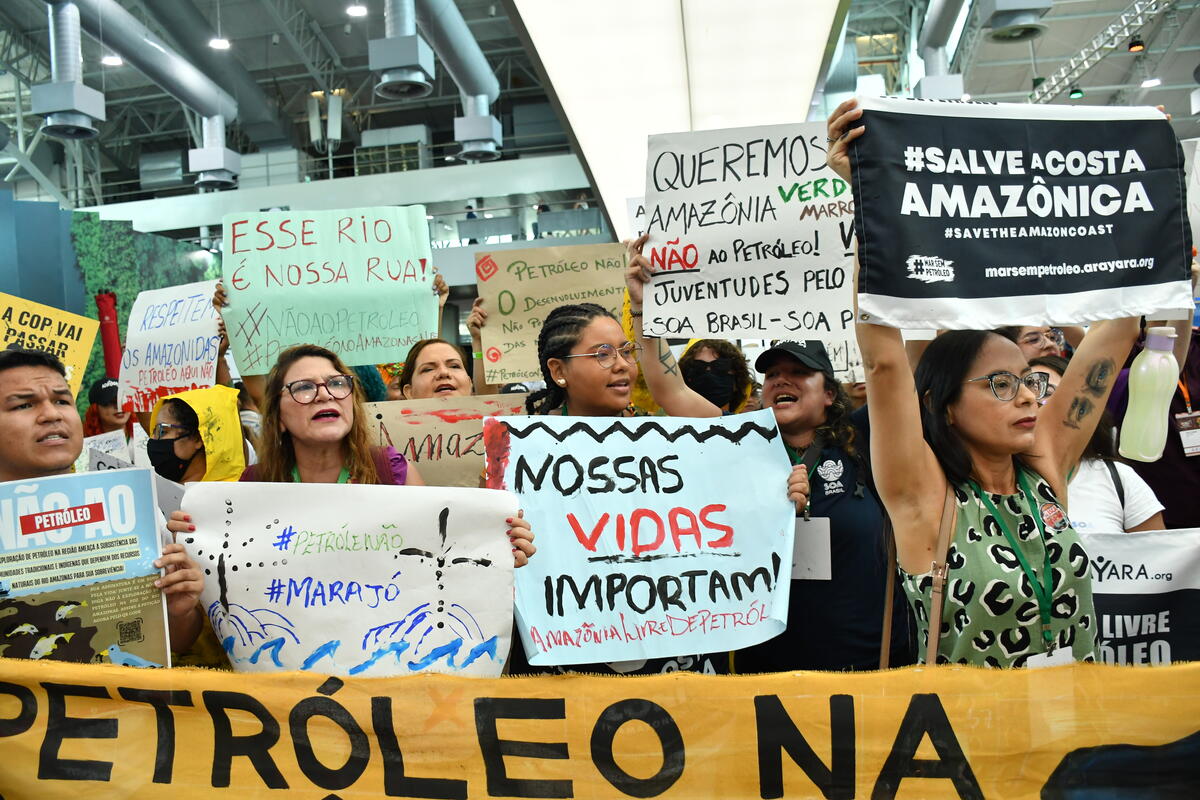It's that time of year again, when governmental representatives from nearly 200 countries will gather at the 28th UN Climate Summit. COP28 will take place in Dubai, United Arab Emirates from Thursday, 30 November to Tuesday, 12 December 2023.

The annual climate talks arrive at the end of what is shaping up to be the warmest year on record, with rising emissions, and planned expansion of fossil fuel production that is laughably out of sync with the progress needed. Yet solutions are here, more affordable than ever and ready to nearly halve global emissions by 2030, if governments are also ready to give them a real chance.
Clearly there's a lot of work to be done!
Here's what Greenpeace will be fighting for in every way at COP28 for a fairer, safer, and more sustainable future for all:
1. Countries must finally agree to set us free from fossil fuels.
This is the moment where governments at COP28 need to make fossil fuels history. In order to avoid the worst impacts of climate change and keep the Paris Agreement warming limit of 1.5ºC within reach, the fossil fuel era must end.
That means a commitment from governments to end any new expansion of new oil, coal and gas as well as a global agreement to a fast, fair and full phase out of all fossil fuels. All governments need to act now, in particular the world's major emitters – with rich historically polluting countries going fastest.
2. The Global Stocktake must conclude with outcomes that kick-start transformative action across the board to limit temperatures to 1.5ºC and respond to increasing climate impacts.
COP28 will mark the completion of the first Global Stocktake (GST), aka the Paris Agreement's reality-check on how the global response to the climate crisis is going, and how to correct course. The conclusions of the Stocktake must contain clear benchmarks for global 2035 emission cuts, and for fossil fuel exit, nature protection and restoration and resilience building, to close the gaps in mitigation, adaptation, finance and loss and damage in this critical decade and beyond.

3. A credible finance package that include the launch of a new Loss and Damage Fund and action to make polluters pay
Finance is a cornerstone of global cooperation on climate change. A credible finance package will include new climate funding, especially for adaptation, and making the new Loss and Damage Fund a reality, so that finance to support already impacted communities can start flowing.
The fossil fuel industry needs to be made to pay for the destruction and harm they have caused. There is no absence of money but an absence of government action to make the fossil fuel industry and other big polluters pay. Governments at COP28 must show they are serious about climate action by affirming the 'polluter pays' principle in the final text. The fossil fuel industry's record profits last year should make the task easy – they certainly can afford to pay!

We can make this happen:
There is no other way around delivering climate justice: COP28 must result in an agreement for a just and equitable phase out of all fossil fuels – oil, gas and coal.
And just how will that happen? By taking stock and correcting course: moving from incremental to transformational change. Stopping from doing just a little better and starting to do enough.
While the pace of progress at these climate summits can be frustrating, it is still the largest forum for the political climate action we desperately need. To even approach success, COP28 will require the global climate movement to push governments and other vital actors in the negotiations even harder, to deliver on climate solutions.

Don't forget: we're making progress as a climate movement. We're winning key fights, and we're determined to push the fossil fuel industry out of the way – at COP28 and beyond.
Interested in learning more or following progress at the climate talks? Check out the Greenpeace COP28 page.






